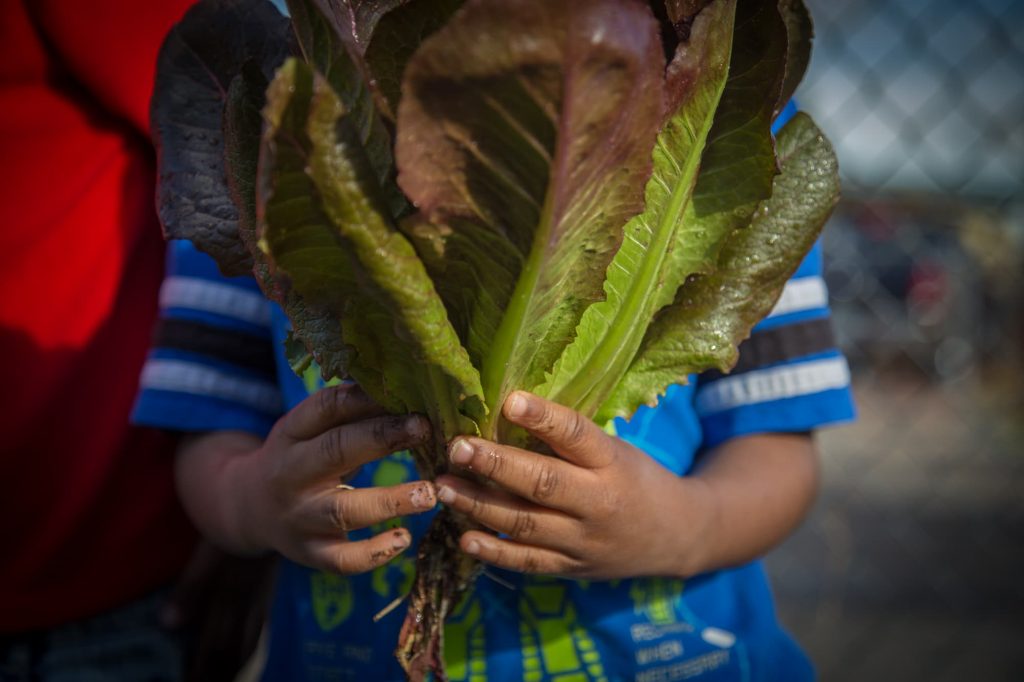Earlier today, the President signed the 2018 Farm Bill into law. As with many policies, it’s been a long and twisty road to get the bill onto the President’s desk. Earlier this year, the House and Senate passed two widely different farm bills. Most notably, the House bill proposed massive cuts to the Supplemental Nutrition Assistance Program (SNAP, or food stamps) while the Senate version avoided these controversial changes. When the House and Senate pass different versions of a bill, it then goes to a “conference committee” that works to resolve the differences. Last week, the conference committee released their final farm bill and the House and Senate quickly passed it with strong bipartisan support.
The farm bill covers way more than just farms—it deals with everything from forestry to animal welfare to organic research. While the bill is far from perfect, it does have a number of wins to celebrate. Here are four things we’re proud to have supported about the 2018 farm bill:
1. Funding for SNAP is protected
The most notable change is actually no change at all: the final bill avoids cuts to SNAP. The House farm bill proposed major slashes to SNAP funding, which would have worsened hunger and nutrition by blocking millions of people from accessing daily meals. Because access to SNAP benefits can impact whether a child receives free or reduced-price lunches in school, these cuts would have barred hundreds of thousands of kids from accessing school meals.
*We were disappointed to see today’s announcement from USDA that they are seeking, through executive action, to cut off food assistance from adults who are struggling to find employment or are underemployed.
2.The farm bill keeps it fresh
The Fresh Fruit and Vegetable Program (FFVP) is a successful program that provides funding to schools to purchase fresh produce for healthy snacks. The House bill would have changed this program to allow for canned, frozen, dried, and other forms of produce. These proposed changes don’t meet our goals: USDA recently evaluated a pilot program that allowed these non-fresh fruit and vegetable snacks into the FFVP and found that overall consumption of fruits and vegetables dropped.
FoodCorps advocated against both this proposal and the changes to SNAP, and fortunately, the conference committee rejected the House approach and agreed to protect the nutrition and health of Americans.
3. There are two awesome new programs that make our food system more just and sustainable
Among a number of other positive policy changes, the farm bill creates two new programs: one that will help develop and sustain local/regional food systems and another that will support our next generation of farmers.
Availability of local, regional food has not caught up with the high (and growing) demand. In response to this need, the farm bill supports the infrastructure and peer networks needed to strengthen local/regional food systems, which will ultimately grow rural economies: something badly needed as more and more people are moving to cities.

Our next generation of farmers is facing a host of challenges. The average American farmer is over 58 years old and fewer and fewer young people are entering the field, due to problems like lack of access to affordable land. The farm bill includes funding for farmer training and outreach, policies to address access to affordable farmland, and incentives for retiring farmers to connect with beginning farmers, veterans, and farmers of color. The farm bill also makes changes to a number of existing programs to make them more responsive to the needs of these farmers.
4. It improves a program that delivers hands-on food education to kids
Of particular interest to FoodCorps, the 2018 farm bill maintains and strengthens the Food and Agriculture Service Learning Program by including a recommendation that USDA scale the grants to maximize impact and to coordinate with other agencies that administer national service programs, such as AmeriCorps.
To all of you who made calls and contacted their lawmakers to protect, expand, and improve the 2018 farm bill: thank you! Your actions have protected the health of all Americans and supported a sustainable, equitable food system.
To learn more about the farm bill, check out our previous articles.






